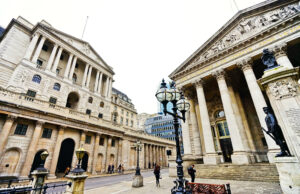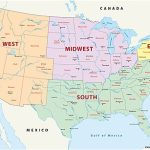
The pound fell to an an all-time low against the dollar this morning, triggering calls from the City for immediate intervention to halt the UK’s slide into a currency crisis.
Sterling dropped by 4.9 per cent to $1.0327 – its lowest level since decimalisation in 1971 – as trading opened in Asian markets for the first time since Kwasi Kwarteng, the chancellor, unveiled £45 billion of unfunded tax cuts in an emergency mini-budget on Friday.
It regained some ground to $1.0551 as trading volumes increased. In a signal that the fall is not simply an indication of continued dollar strength, the pound also fell 2.4 per cent against the euro to €1.0887.
“Sterling is getting absolutely hammered,” said Chris Weston, head of research at Pepperstone, a foreign exchange broker. “Investors are searching out a response from the Bank of England. They’re saying this is not sustainable.”
Paul Dales, of Capital Economics, said the Bank of England governor Andrew Bailey must step in today in order to restore control and credibility. The most effective move, he said, would be to implement a “large and immediate” interest rate hike of at least 100 basis points to 3.25 per cent.
“We’ve entered the part of the currency crisis where psychology takes over,” he said.
The pound has fallen by 22 per cent against the safe-haven dollar this year, and concern is mounting that sterling could reach parity with the reserve currency by the end of the year. The falling pound will push up the price of imports including energy, food and clothing, worsening the cost-of-living crisis.
Dales warned that even dramatic monetary intervention may not be enough to prevent a further slide in the value of sterling, given that: “We’re not convinced that Bailey has enough credit in the bank to pull this off.”
He also conceded that it would be difficult “from a political economy point of view” for the Bank to raise interest rates just days after the government outlined its new economic policies, adding: “And of course, higher interest rates just make the sustainability of the government’s fiscal plans even more questionable.”
Liz Truss, who has been prime minister for three weeks, has said her government was “incentivising businesses to invest and we’re also helping ordinary people with their taxes”.
Asked in an interview with CNN, the US broadcaster, whether she was “recklessly running up the deficit”, Ms Truss said: “I don’t really accept the premise of the question at all.”
After his fiscal statement, the chancellor indicated that his announcements were just the beginning of the government’s agenda designed to revive the UK’s stagnant economy.
Kwarteng said that the new administration was investigating possible further reductions in income tax and the loosening of immigration rules and other regulations. He has brushed off questions about the markets’ reaction and said he remained focused on achieving annual growth of 2.5 per cent.
The £45 billion tax-cutting package was met with alarm and unease by leading economists, some Tory MPs and financial markets. The Institute for Fiscal Studies think tank said that he was “betting the house” by putting government debt on an “unsustainable rising path”.
Shadow chancellor Rachel Reeves told media: “Instead of blaming everybody else, the Chancellor and the Prime Minister, instead of behaving like two gamblers in a casino chasing a losing run, they should be mindful of the reaction not just on the financial markets but also of the public.”
In a sign of Tory unease, George Osborne, a Conservative former chancellor, urged the government to end the “schizophrenic” policy of slashing taxes and increasing borrowing. He told Channel 4: “You can’t just borrow your way to a low-tax economy”.
“Fundamentally, the schizophrenia has to be resolved — you can’t have small-state taxes and big-state spending,” he said.
Read more:
Pound falls to record low against dollar






